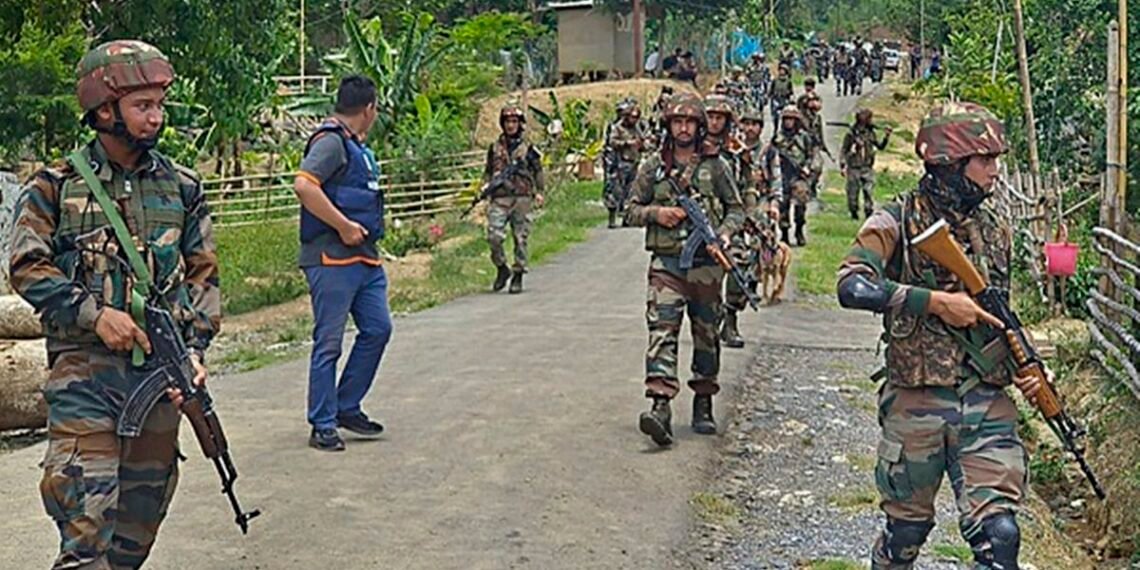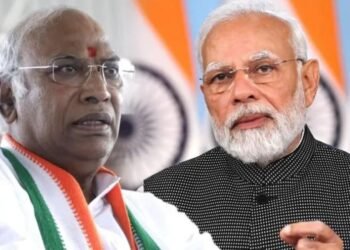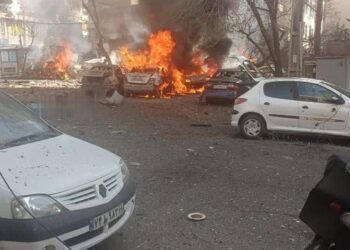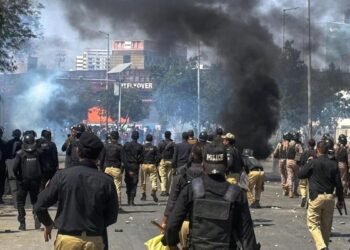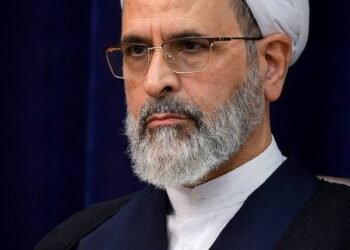The new camp, believed to be manned by UNLF cadres, violates the revised Suspension of Operations (SoO) terms that prohibit armed structures near populated zones.
BY PC Bureau
October 27, 2025 — An Imphal valley-based insurgent group has reportedly established a fortified base in Khamenlok, Manipur — perilously close to Kuki settlements.
The camp’s construction has renewed fears of ethnic escalation, with critics questioning the Centre’s “one-sided” implementation of the revised Suspension of Operations (SoO) agreement — a framework designed to prevent such incidents.
Khamenlok, located in Imphal East district, lies in a volatile buffer zone separating Meitei and Kuki areas. Its proximity to Kuki-dominated villages and vital transit routes makes it a potential flashpoint. Local reports suggest the new base features three-foot-thick reinforced concrete bunkers, alarming residents and civil society groups who see it as a direct provocation.
Violation of the SoO Framework
The updated SoO agreement — renewed on September 4, 2025 between the Ministry of Home Affairs (MHA), the Kuki-Zo Council, the Kuki National Organisation (KNO), and the United People’s Front (UPF) — explicitly forbids armed camps near populated or conflict-prone areas. It also mandates that designated camps must be situated at a “reasonable distance” from both international and interstate borders, with unauthorized sites subject to dismantling by security forces.
Originally signed in 2008, the SoO was framed as a tripartite ceasefire among the Centre, the Manipur government, and Kuki insurgent groups. Its 2025 renewal followed a year-long lapse.
Separately, on November 29, 2023, the MHA and Manipur government signed a “peace agreement” with a faction of the UNLF — the Pambei group — which pledged to renounce violence and abide by the Constitution. However, the UNLF remains banned under the Unlawful Activities (Prevention) Act (UAPA), and no formal suspension of operations covers its remaining factions.
The construction of a fortified camp, reported to be manned by UNLF cadres in social media posts, in Khamenlok appears to flout these terms outright, fueling questions about the government’s selective enforcement of the SoO and the Indian Army’s monitoring mechanisms.
Can the @easterncomd explain how the hell the UNLF managed to build defensive structures in Khamenlok? Isn’t this supposed to be in the buffer zone? You think UNLF having 3-foot-thick RCC bunkers is going to be problematic only for Kukis? What are you guys—idiots? @Dig_raw21 pic.twitter.com/ovuy4fiXp8
— Min งึลมินธัง (@ngulmint) October 27, 2025
Outrage and Accusations of Bias
News of the camp triggered a wave of anger within the Kuki-Zo community. An X post by user @ngulmint captured the sentiment:
“Can the @easterncomd explain how the UNLF managed to build defensive structures in Khamenlok? Isn’t this supposed to be a buffer zone? You think UNLF having 3-foot-thick RCC bunkers is only problematic for Kukis? What are you guys — idiots?”
READ: Molestation a Lesson for Aussie crickters, MP Minister’s shocker
The outrage reflects a growing perception that the Centre and Army have turned a blind eye to Meitei militant activity while tightly policing Kuki factions under the SoO framework.
Allegations of Double Standards
Analysts and activists have accused both the MHA and the Eastern Command of applying double standards — granting operational leeway to the UNLF while suppressing Kuki movements.
“The government’s silence is dangerous,” said a retired security official. “Allowing a banned group to fortify itself in a buffer zone sends a message that peace deals are selective and politically driven.”
Government Under Pressure
Mounting public criticism has placed pressure on the MHA and the Indian Army’s Eastern Command to dismantle the Khamenlok base and reaffirm their neutrality.
Experts warn that failure to act decisively could unravel months of tenuous calm in Manipur, emboldening extremist factions on both sides.
“This isn’t just a security lapse,” said a Kuki community leader from Churachandpur. “It’s a message — that the government’s peace deal was never meant for everyone.”



